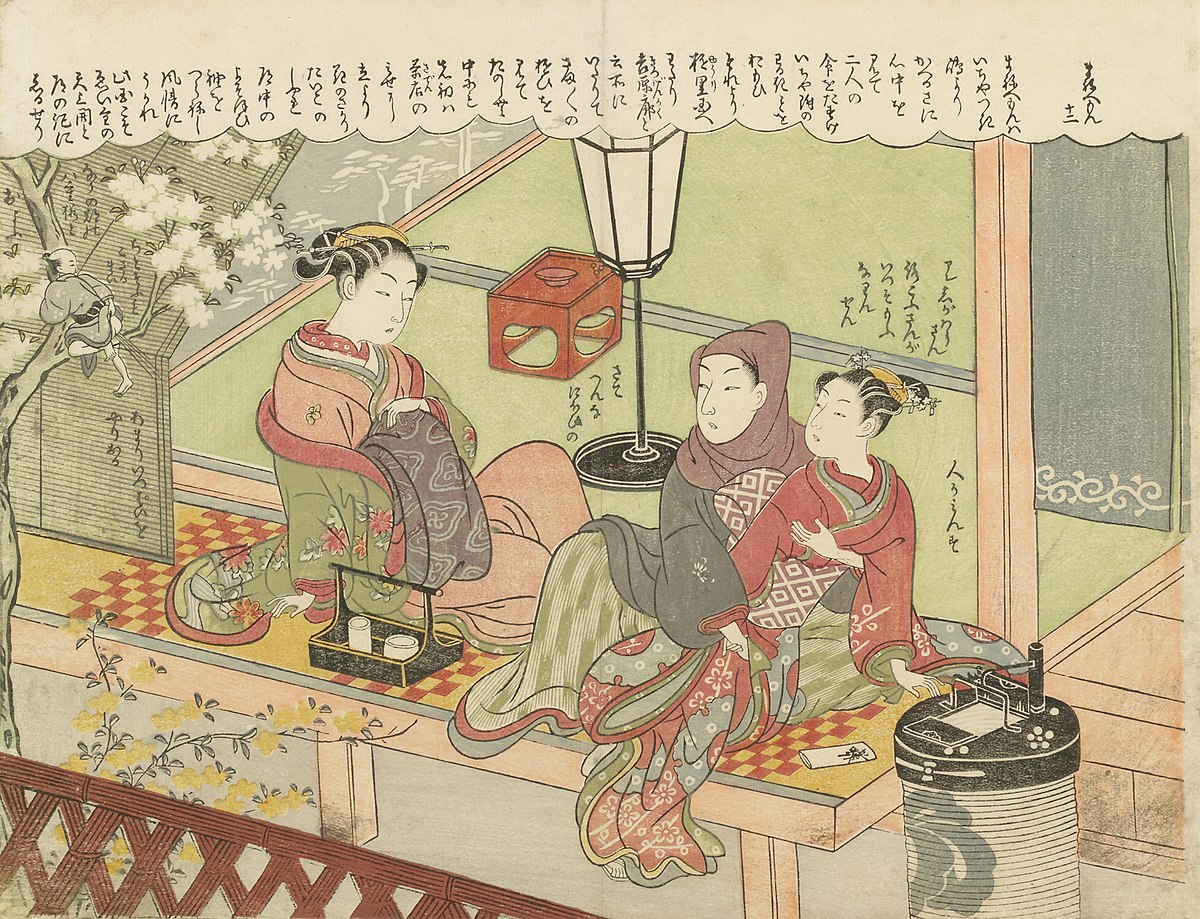A
hetaira (
/hɪˈtaɪrə/;
Ancient Greek: ἑταίρα, lit. 'female companion'; pl.. ἑταῖραι
hetairai,
/hɪˈtaɪraɪ/),
Latinized as
hetaera (
/hɪˈtɪrə/ pl.
hetaerae /hɪˈtɪriː/), was a type of
highly educated female companion in ancient Greece who served as an artist, entertainer, and conversationalist. Historians have often classed them as
courtesans, but the extent to which they were
sex workers is a matter of dispute.
Custom excluded the wives and daughters of Athenian citizens from the
symposium, but this prohibition did not extend to
hetairai, who were often foreign-born and could be well-versed in arts, philosophy, and culture.
Other female entertainers might appear in the otherwise male domain, but hetairai actively participated in conversations, including intellectual and literary discourse...
Along with sexual services, women described as
hetairai rather than
pornai seem to have often been educated, and have provided companionship.
[13] According to Kurke, the concept of hetairism was a product of the
symposium, where
hetairai were permitted as sexually available companions of the male party-goers.
[14] In
Athenaeus'
Deipnosophistai,
hetairai are described as providing "flattering and skillful conversation": something which is, elsewhere in classical literature, seen as a significant part of the hetaira's role.
[15] Particularly, "witty" and "refined" were seen as attributes which distinguished
hetairai from common pornai.
[16] Hetairai are likely to have been musically educated, too.
[17]
Free hetairai could become very wealthy, and control their own finances. However, their careers could be short, and if they did not earn enough to support themselves, they might have been forced to resort to working in brothels, or working as pimps, in order to ensure a continued income as they got older.[18]

en.wikipedia.org
In
Ancient Greece, the
symposium (
Ancient Greek: συμπόσιον,
sympósion, from συμπίνειν,
sympínein, 'to drink together') was the part of a banquet that took place after the meal, when drinking for pleasure was accompanied by music, dancing, recitals, or conversation.
[1] Literary works that describe or take place at a symposium include two
Socratic dialogues,
Plato's
Symposium and
Xenophon's
Symposium, as well as a number of
Greek poems, such as the
elegies of
Theognis of Megara. Symposia are depicted in
Greek and
Etruscan art that shows similar scenes.
[1]...
The Greek symposium was a key Hellenic social institution. It was
a forum for the progeny of respected families to debate, plot, boast, or simply to revel with others. They were frequently
held to celebrate the introduction of youth into aristocratic society. Symposia were also held by aristocrats
to celebrate other special occasions, such as victories in athletic and poetic contests.

en.wikipedia.org




 Exotical type hoes who were famous 'influencers' of the time, even allowed in spaces decent women weren't:
Exotical type hoes who were famous 'influencers' of the time, even allowed in spaces decent women weren't:

 There have been famous. influential whores everywhere, literally everywhere, forever. I was trained as a historian, ancient times hoes are a hobby, listen to what I'm telling you!
There have been famous. influential whores everywhere, literally everywhere, forever. I was trained as a historian, ancient times hoes are a hobby, listen to what I'm telling you!
